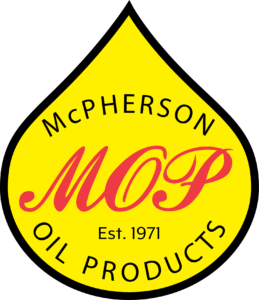For an Effective Maintenance Program, Partner with Your Lubricant Supplier
14 Oct 2019, Posted by in General It is true that there is no one-size-fits-all approach to designing and implementing a successful maintenance program.
It is true that there is no one-size-fits-all approach to designing and implementing a successful maintenance program.
However, your lubricant supplier can help you make the right decisions to ensure your program works for you, as it can leverage decades of experience working with equipment builders and developing new technologies to help you identify the best solutions to fit the needs of your specific equipment.
Below are a few ways in which working with your lubricant supplier can help you optimize your maintenance program and achieve your productivity goals.
1. Assessing Your Product Mix
You need to use the right products for your equipment, which is not always easy for operations that use a wide range of industrial equipment.
Your lubricant supplier’s engineering teams can analyze your equipment operating conditions, specifications and OEM recommendations to help identify the best product choices for your needs.
This can help you navigate some complex decisions – such as whether you should use a mineral-based or synthetic product. And, the teams can also help you select the right mix of lubricants formulated to withstand your equipment’s specific operating challenges, which may include extreme temperatures, heavy loads or exposure to contaminants.
2. Ensuring Proper Storage and Handling Practices
Improper storage and handling is another important consideration, as it can significantly reduce a lubricant’s effectiveness and even turn safe lubricants into potential waste.
Many lubricant suppliers have teams of highly trained field engineers that can conduct lubricant storage and handling studies across your plant, providing comprehensive review and analysis.
These teams will conduct a walk-through review of your facility before reviewing current practices, location of inventory, logistics, manpower resources, and order patterns, among other factors. They will then identify trends, critical products, safety, and environmental issues and any capital or manpower investments that may be needed before delivering a report that documents the study findings.
3. Leveraging Data to Improve Equipment Performance
Used oil analysis services are critical to assessing equipment health, as they can help identify root causes of failure, prevent equipment breakdown, and optimize oil drain intervals.
Specifically, lubricant engineers can use oil analysis data to diagnose problematic equipment conditions before they result in equipment failure and determine the optimal oil drain interval for the application.
For example, a Kentucky-based power generation company turned to ExxonMobil to extend the service life of the triple reduction gear drives on its roll-wheel pulverizers. We implemented a routine oil analysis program to monitor the condition of the equipment components and in-service lubricants. By practicing proactive condition monitoring through used oil analysis, the customer was able to extend oil drain intervals and prolong equipment life, helping reduce oil waste generation by 1,000 gallons per year and resulting in a total cost savings of $180,000.
Working with your lubricant supplier can significantly benefit your operation, so as you develop your equipment maintenance approach, be sure to leverage some of these practices to help ensure your plant is safe, effective and profitable.
McPherson oil, a lubricant supplier and authorized ExxonMobil distributor, is happy to partner with you to look at your goals and help you find ways to efficiently save money. We have experts who can look at your lubrication program and help with cost savings, preventative maintenance, oil sampling program and more. Contact us today and let us know what we can help you accomplish.
*Source: Work Smarter Guidebook, ExxonMobil
